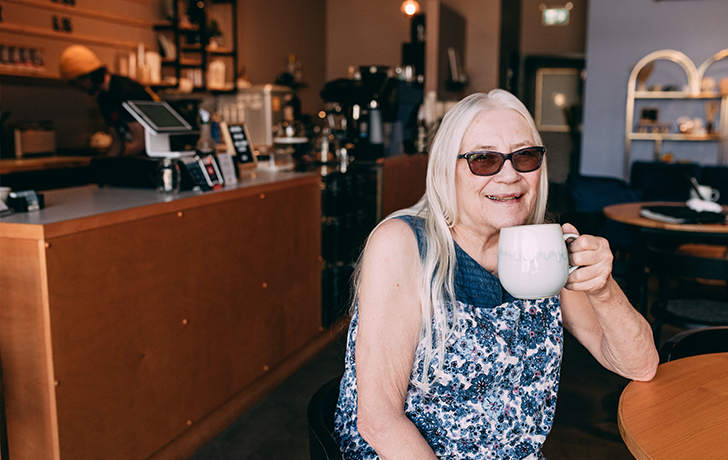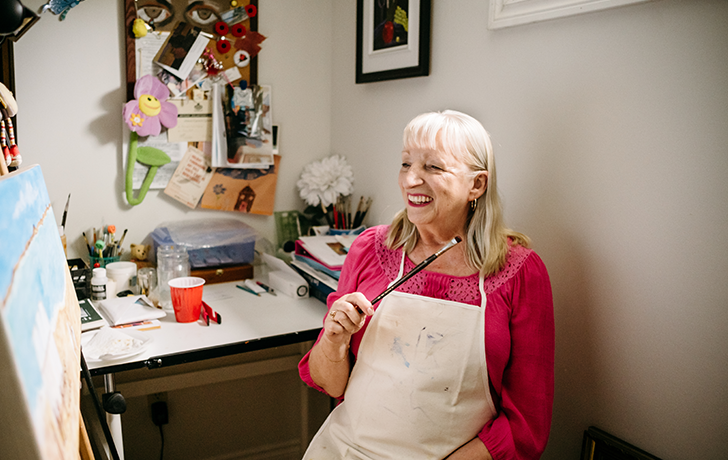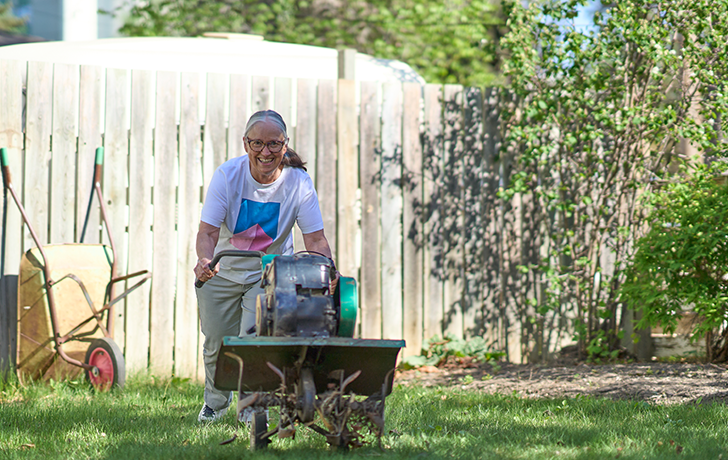Spotlight on Seniors Living With Diabetes

Older Canadians with diabetes have much to manage, including, for some, hypoglycemia. Three individuals share their stories of living with diabetes.
Diabetes Overview
As life expectancies increase worldwide, diabetes is becoming more prevalent[1]. According to Diabetes Care Community, nearly half of people with diabetes in Canada are over 65 years of age[1]. Diabetes is a chronic medical condition characterized by high levels of sugar (glucose) in the blood. It occurs when the body either doesn’t produce enough insulin (a hormone that regulates blood sugar) or cannot effectively use the insulin it produces.
Type 2 diabetes is the most common form of diabetes, and usually develops due to a combination of genetic predisposition and lifestyle factors. Diabetes requires ongoing management, which may include a variety of lifestyle modifications and treatments.
Key Management Focus: Hypoglycemia
For people living with diabetes and being treated with insulin, hypoglycemia, or low blood sugar, can be an ongoing concern. Hypoglycemia can be triggered a number of ways, but is typically due to an imbalance between food, medication and physical activity[2]. In one study, individuals with type 2 diabetes experienced about 37 daytime and 13 nighttime hypoglycemia events per year[2]
Symptoms can include:
-
- Sweating
- Hunger
- Headache
- Blurred vision
- Extreme tiredness and paleness
- Dizziness
- Trembling
- Mood change
Symptoms are sometimes mistaken for other age-related conditions.[1] It’s important for people with diabetes and their caregivers to recognize the signs of hypoglycemia and how to treat it. Learn more here.
While your health care team and quality educational resources will be important guides, there is also much to learn from those who have travelled the road you are on.
Rosemary Harris: “The positive side of diabetes not being a rare disease is there is so much good information available, online and through your family doctor.”
Diabetes Journey: Living with Type 2 diabetes since 2010, Rosemary was relieved when her family doctor diagnosed her. She had known something was amiss but couldn’t put her finger on what it was. Her father had diabetes and her brother has pre-diabetes.

Guideposts from Rosemary: The sooner you’re able to find a way to accept your diagnosis, the sooner you’ll be able to move forward with coping and living with it.
There’s a genetic component[3]. So, you may still develop diabetes, even if you’re someone who already eats well and exercises. It’s worth making the change to a healthy lifestyle no matter what.
Monique Laframboise “Look for a local support group with understanding of the disease. It would help to attend face to face meetings or find an online peer support group. If I’d had more support when first diagnosed, I would have had a more positive coping experience especially in the first few years of diagnosis.”
Diabetes journey: Although her mother and father both had diabetes in their 70s, Monique was shocked to be diagnosed with type 2 diabetes at the age of 48. At first, she was overwhelmed, but family support helped her move forward. Now she feels proud of how she manages her condition. Monique focuses on eating well, lots of exercise, and working with her doctor to monitor her health. Monique and her sister are keen urban poling enthusiasts (also known as Nordic walking). Monique walks at least 10km every week and has joined a weekly Zumba class. If the weather isn’t good, she uses free online exercise programs.

Guideposts from Monique: Find a community circle which will support your diabetes journey and morale and maybe share healthy recipes. Exercise is important, find one or two exercises that you enjoy.
Brenda Andreas “Don’t isolate yourself or feel like you can’t live life to the fullest with diabetes.”
Diabetes Journey: Brenda has a strong genetic link to diabetes. Out of 8 siblings, 6 have diabetes and her grandfather died of the disease. When Brenda was first diagnosed, she was worried and scared. She also struggled with the diagnosis because she already had other chronic conditions and didn’t want to be labelled. Now, three years later, Brenda no longer dreads her diabetes or test results. Having learned how to manage her diabetes, Brenda is often curious to see how her lifestyle actions impact her blood results.

Guideposts from Brenda: Brenda recommends developing habits and a routine around eating, exercising and being active to make sure that well-being is prioritized. She also emphasizes collaborating with a whole health care team. Not just your family doctor, but also pharmacists, dieticians, social workers, or nurses.
This content is proudly brought to you by Novo Nordisk Canada.
[1] Diabetes Care Community. (n.d.). Diabetes and Seniors. https://www.diabetescarecommunity.ca/about-diabetes-landing/diabetes-and-seniors/
[2] https://hypoinfo.ca/#bloodSugar
[3] Diabetes Canada. (n.d.). ‘Causes’ of diabetes. https://www.diabetes.ca/about-diabetes/causes-of-diabetes